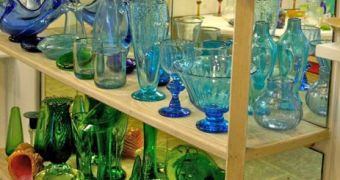Ecotourism isn't as new as we would like to think. Sure, it represents one of the most significant green trends, embraced on an international scale, but it has been offering its countless advantages for more than three decades.
Maho Bay Camps, a 114-unit campground located in the US Virgin Islands, has been a path opener for earth-friendly holiday destinations since 1976. Stanley Selengut, its founder, has dedicated his entire life to developing a green camp where tourists can enjoy Mother Nature's benefits while minimizing their impact upon the surrounding areas.
He demonstrated to his competitors that ecotourism highlights not only an eco-conscious lifestyle, but also a profitable line of business.
Stanley knows that trash and works of art can be tightly connected in a facility which has embraced most of the earth-friendly values. Inspiration, creativity and patience can allow people to turn common recycled materials into amazing masterpieces, and the products one can spot in the "Trash to Treasures Art Center” reflects this peculiar relationship between things which have been thrown out and handmade treasures.
The "Trash to Treasures" program has a lot of fans, taking into consideration both its originality and utility. The people behind this initiative make sure that the resort's trash is recycled, being transformed in no time in craft items and fine art.
The Center features a Glass Studio, Clay Studio, Textile Department and Gallery/Craft Center, where individuals can see the wonder with their own eyes. After enjoying this experiencing all this, people will most likely think twice before sending their plastic items on a short trip to the local landfills.
The team behind the Glass Studio decided to offer free nightly demonstrations of glass-making. The participants can witness the birth several items with an amazing design, manufactured out of bottles that usually end up in trash containers.
Reusing our resources is the first step towards sustainability, and the individuals who take care of the Glass Studio are aware of this fact and try to re-educate the people interested in their work by showing them how to create one-of-a-kind items while relying on glass bottles by “blowing, casting and flame working.”
At this point in time, the rapid and profitable expansion of ecotourism on a large international scale has determined the birth of Estate Concordia Preserve.
The facility occupies a surface of 51 acres and is able to impress its visitors with "utility self-sufficient cottages, super insulated villas, solar power, cisterns to collect rainwater, and other green building processes," everything they need and might think of while planning the eco-trip of their dreams.

 14 DAY TRIAL //
14 DAY TRIAL //